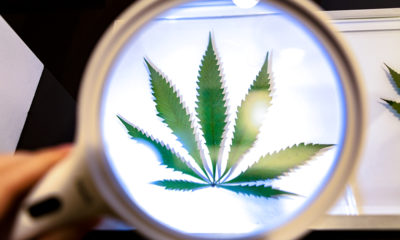
Medical
Hawaii Allows MMJ Dispensaries After 15 Years
Hawaii will finally allow medical marijuana dispensaries to open.
In 2000, Hawaii became the sixth state in the nation to legalize marijuana for medicinal use, but with one huge catch. Qualified patients would have no legal channel through which to purchase their medicine, and would instead be forced to grow their own cannabis plants or go through the black market.
Now, after 15 years and after registering 13,000 patients, Hawaii will finally allow medical marijuana dispensaries to open on its four most populated islands. On July 14, Governor David Ige signed HB 321 into law, which establishes the legal framework and timeline for up to 16 dispensaries to open after July 2016.
“I support the establishment of dispensaries to ensure that qualified patients can legally and safely access medical marijuana,” Ige said in a written statement after signing the bill. “We know that our challenge going forward will be to adopt rules that are fair, cost effective and easy to monitor. The bill sets a timeline. We will make a good faith effort to create a fair process that will help the people most in need.”
Currently, state administrators are developing the rules and regulations for the new dispensaries, including the procedures around dispensary security, transportation and cultivation. According to Carl Bergquist, the executive director of the Drug Policy Forum of Hawaii who advocated for the reform, the law has flexible enough language to allow for guidelines to shift depending on demand.
“This law is extremely exciting and it’s long overdue,” Bergquist told Cannabis Now. “We know that the bill is not perfect on paper, but is going to change the reality for countless patients. We’re working right now to make the administration’s rules are as inclusive, open and as available as possible to anyone who needs the medicine.”
The state will begin accepting dispensary applications in January 2016. Up to eight licenses will be awarded in April 2016, with each license allowing for the possibility for opening two dispensaries and two grow sites.
However, one of the potential problems with the law is the high financial requirement the state has set for dispensary license applicants. The law requires that the dispensary applicant “controls at least $2 million for each license and at least $100,000 for each dispensing location,” a number so high that advocates worry smaller providers will be pushed out in favor of powerful marijuana corporations.
But Bergquist says this won’t necessarily be the outcome. “The way the bill is written allows for subcontractors,” he said, “so if one individual has a group to get a license to open up dispensaries, they can then in turn hire local businesses that specialize for security or growing, for example. So we hope that it becomes a broad effort and not just ‘big money’ as people say.”
Another potential problem with the law is that medical marijuana patients on the smaller islands will be left out on their own. The law grants three licenses to Oahu, two licenses to the Big Island (otherwise known as Hawaii), two licenses to Maui, and one license to Kauai. Because of federal law, the few patients from Molokai, Lanai and Niihau will not be allowed to transport medical marijuana from a dispensary on another island back to their home islands. Hawaii, therefore, is the only state in the nation where the federal government can stop in-state transportation of legal marijuana.
Despite the potential accessibility issues, the state’s Department of Health has seen a surge in applicants for medical marijuana candidacy since the bill was signed in to law, according to Bergquist. “There are more people in this interim period starting to grow and becoming caregivers because they feel the new law has legitimized what they are trying to do,” he said.
When Governor Ige signed HB 321, he also signed partner legislation that bans discrimination against medical marijuana patients.
Do you use medical marijuana in Hawaii? Tell us about your experiences below.
























